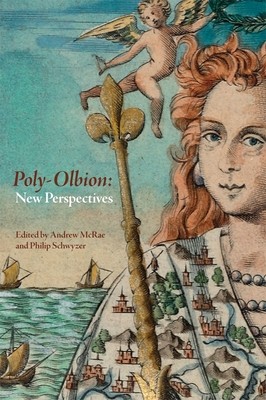
- We will send in 10–14 business days.
- Publisher: Boydell & Brewer
- ISBN-10: 1843845482
- ISBN-13: 9781843845485
- Format: 15.6 x 23.4 x 1.6 cm, kieti viršeliai
- Language: English
- SAVE -10% with code: EXTRA
Poly-Olbion: New Perspectives (e-book) (used book) | bookbook.eu
Reviews
Description
First collection devoted to the Poly-Olbion, bringing out in particular its concerns with nature and the environment.
Poly-Olbion (1612-1622), the collaborative work of the poet Michael Drayton, the legal scholar John Selden, and the engraver William Hole, ranks among the most remarkable literary productions of early modern England, and arguably among the most important. An ambitious and idiosyncratic survey of the history, topography, and ecology of England and Wales - ranging in its preoccupations from the supernatural conception of Merlin to the curious habits of beavers, and from celebrations of martial glory to laments over the diminishment of woodlands - the book seems determined to pack all of national and natural history between its covers. In the course of thirty songs, Drayton's Muse traverses a varying landscape in which personified rivers, hills, and forests sing of past glories and disasters, pursuing local and regional rivalries whilst propounding a heterogeneous vision of Britain. However, perhaps because of its very uniqueness, it has received relatively little critical attention.This is the first ever volume of essays on Poly-Olbion, and a reflection of the work's increasing prominence in scholarship on the literature and culture of early modern England: the poem has long been central to critical studies of early modern nationhood and nationalism, but in the last decade it has also assumed a central place in discussions of pre-modern approaches to ecological sustainability and environmental degradation. The contributors here address questions about the form and purpose of Poly-Olbion, as well as engaging with these dominant critical debates, reflecting the extent to which the preoccupations of Drayton and his collaborators have become our own.
EXTRA 10 % discount with code: EXTRA
The promotion ends in 21d.16:40:09
The discount code is valid when purchasing from 10 €. Discounts do not stack.
- Publisher: Boydell & Brewer
- ISBN-10: 1843845482
- ISBN-13: 9781843845485
- Format: 15.6 x 23.4 x 1.6 cm, kieti viršeliai
- Language: English English
First collection devoted to the Poly-Olbion, bringing out in particular its concerns with nature and the environment.
Poly-Olbion (1612-1622), the collaborative work of the poet Michael Drayton, the legal scholar John Selden, and the engraver William Hole, ranks among the most remarkable literary productions of early modern England, and arguably among the most important. An ambitious and idiosyncratic survey of the history, topography, and ecology of England and Wales - ranging in its preoccupations from the supernatural conception of Merlin to the curious habits of beavers, and from celebrations of martial glory to laments over the diminishment of woodlands - the book seems determined to pack all of national and natural history between its covers. In the course of thirty songs, Drayton's Muse traverses a varying landscape in which personified rivers, hills, and forests sing of past glories and disasters, pursuing local and regional rivalries whilst propounding a heterogeneous vision of Britain. However, perhaps because of its very uniqueness, it has received relatively little critical attention.This is the first ever volume of essays on Poly-Olbion, and a reflection of the work's increasing prominence in scholarship on the literature and culture of early modern England: the poem has long been central to critical studies of early modern nationhood and nationalism, but in the last decade it has also assumed a central place in discussions of pre-modern approaches to ecological sustainability and environmental degradation. The contributors here address questions about the form and purpose of Poly-Olbion, as well as engaging with these dominant critical debates, reflecting the extent to which the preoccupations of Drayton and his collaborators have become our own.


Reviews